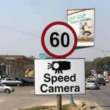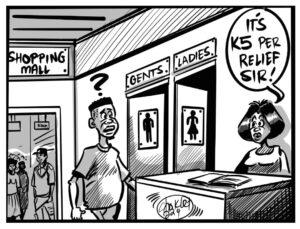Government cannot achieve its non-tax revenue target in 2019 because Zambians are successfully managing to avoid paying excessive speeding fines, says KPMG, the globally-renowned audit, tax and advisory services firm.
Speaking during a ACCA-Zambia Tax Forum in Lusaka, Friday, KPMG tax partner Michael Phiri said that government will not achieve their projected non-tax revenue collection target next year because the introduction of electronic speed trap cameras has forced motorists to avoid paying the K300 fine.
According to the 2019 national budget, the government has rolled out an unprecedented provision of fees and fines amounting to K4.24 billion as part of its non-tax revenue measures.
The overall non-tax revenues target, which also takes into account the Mineral Royalties at around K4.89 billion, is K9.13 billion that has been projected to be collected next year forming around 10.5 per cent of the 2019 national budget.
“So, in terms of non-tax-revenue mobilization challenges, and I was alluding to the fact that, for the speed cameras, people have simply slowed down; there is now 99 per cent compliance in terms of driving at 60 (Km/h). So, what that does is that, whatever budget was plugged in there by way of fees and fines cannot be achieved,” Phiri told stakeholders, who included former Works and Supply Minister Felix Mutati at Intercontinental Hotel.
“In fact, as (Finance) Minister Margaret Mwanakatwe, alluded to the performance of last year’s budget, and the performance of the budget so far, she was alluding to the low yield from non-tax revenues because when we hear the (ZRA) Commissioner-General [Kingsley Chanda], he’s always saying that, ‘we have met and exceeded the (revenue) target.’ But when you look at what the government has to spend, they almost always seem to be just barely making it each month. And it is really because the non-tax revenue by way of fees and fines, and even by way of domestic borrowing, is a little constrained; we are not hitting the targets.”
He advised government to revise the excessive speed limit fines downwards from the current K300 to increase its non-tax revenue collections.
“But the challenge there really needs to be addressed. And we must be clear, in my view, if we want a revenue measure of using funds as a way of collecting revenue, you don’t make it K300 because if it is K300, I will just not pay US $30 equivalent; I will slow down; I will do everything to make sure I comply with the law,” said Phiri.
“If you want it as a revenue measure when I am speeding and going to the airport, and I have to pay a much lower amount, maybe K50, I will be much happier to speed and pay the fine, and then you get your non-tax revenue. I think we need to define what we really want in that area.”
The ACCA-Zambia Tax Forum was held to share the 12 tenets of tax, a discussion to take account the wider tax landscape and new pressures facing governments around the world.
One of the 12 tenets included ‘openness and transparency’ where ACCA-Zambia recommended that tax payers should understand what they are paying; why they are paying it and what the benefits of paying will be as a means of boosting compliance.












